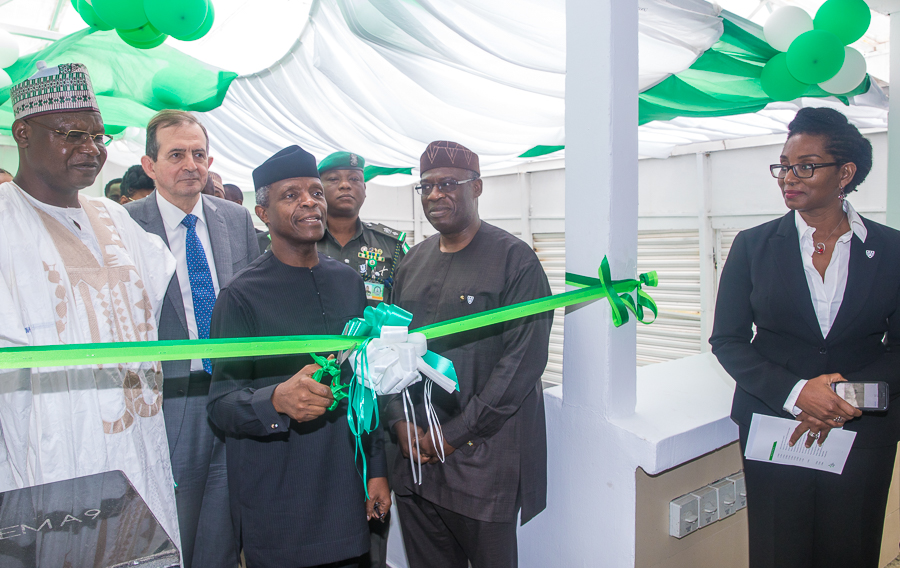
How To Leverage Technology Innovation To Solve Climate Change Challenges – VP Osinbajo
*Nigeria officially joins World Bank’s Climate Business Innovation Network
The development, deployment and transfer of locally relevant climate technologies remain the best solution to climate change challenges, according to Vice President Yemi Osinbajo, SAN.
Prof. Osinbajo stated this earlier today in Lagos at the inauguration of the Nigeria Climate Innovation Centre (NCIC) situated at the Enterprise Development Centre of the Lagos Business School.
The Nigeria Climate Innovation Centre is a public-private partnership as represented by the Federal Government, the World Bank Group and the Pan-Atlantic University.
The Centre provides holistic, country-driven support to accelerate the development, deployment and transfer of locally relevant climate and clean energy technologies.
Acknowledging the challenge posed by the phenomenon of climate change and the need for the adoption of an innovative approach, the Vice President said “the task of advancing climate action is a crucial one, especially for Nigeria”.
According to him, “The pressure for livelihoods and food for a huge population will put tremendous pressure on natural resources and the implications for climate change will be dire indeed. The creation of an enabling environment for climate-smart businesses to thrive is simply the only way to go.”
“I have personally visited several Startups, Technology hubs and Innovation spaces around the country, and what I have seen is that phenomenon of the incredible innovativeness, creativity and drive of the Nigerian, constantly developing and deploying solutions in many sectors: agriculture, health, transport, security, climate action, and many more locally relevant Climate Technologies,’’ the Vice President added.
Speaking further about the relevance of technology innovation in resolving climate related issues, the Vice President said “one of the key sectors where there is potential for high impact interventions by green technologies is the off-grid solar sector.”
He added that the Solar Home Project and the Energizing Economies Initiative are some of the private-sector-driven efforts targeted at providing off-grid power to homes, markets and economic clusters across the country.
Prof. Osinbajo stated that “so far, 13,000 shops at the Sabon-Gari market in Kano are currently being powered through high-capacity stand-alone solar systems with more to come on stream soon at the Ariaria Market in Aba, Sura Market in Lagos, and other markets in Oyo, Edo and Ondo states”
The Vice President also challenged the new climate centre to develop and deploy the technology and expertise required to deliver clean energy in areas prone to oil pollution and other related hazards.
According to him, “the innovation Centre must seek to commodify the technology and expertise we require to deal with the oil spill challenge in the Niger Delta.”
He also announced that the Federal Government is investing considerably in Liquified Petroleum Gas (LPG), which will help overcome challenges and risks brought about by the use of kerosene and firewood in our households.
Prof. Osinbajo tasked the NCIC team to come up with innovation in smart cooking equipment that can utilise LPG in the most efficient manner.
On the challenge of funding for off-grid power projects, the Vice President urged stakeholders to take advantage of the Green bond issued by the Federal Government and the opportunities provided at the newly inaugurated climate centre, noting that “it provides a platform to attracting or unlocking venture financing and private equity funds for climate-smart businesses and Nigerians providing climate-smart solutions.

